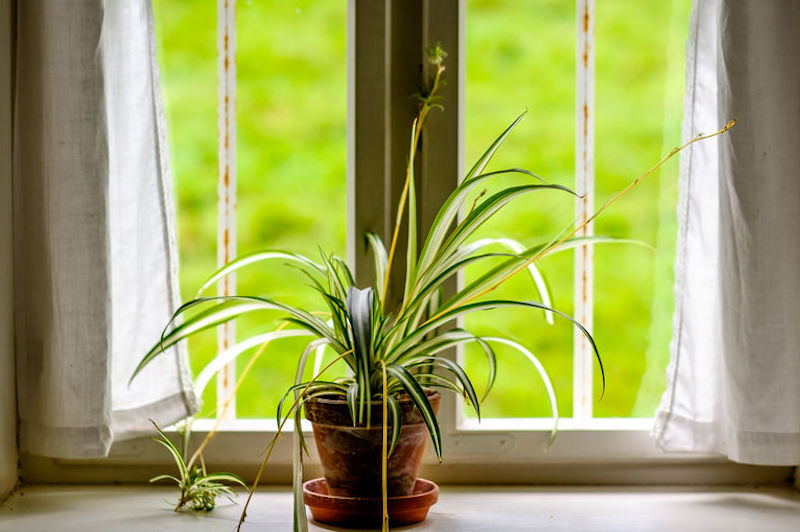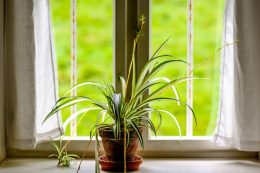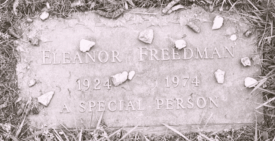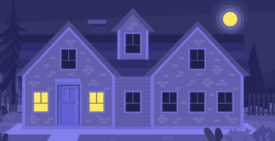
(123RF)
2019 was the worst year of my life.
It began innocently enough. My partner, Brian, had started feeling flu-like a few days before, and we’d canceled our New Year’s gathering. He’d been in bed most of the evening and just before midnight, I crawled in beside him. Our two-year-old daughter lay quietly sleeping in the room beside us.
I reached out and hugged him. “Happy New Year, honey,” I said.
The moment was peaceful and loving and achingly normal. But I was standing on the precipice of an enormous shift in the trajectory of my life. Everything I’d built, everything I believed to be solid and true, was about to come crashing down around me. I had no idea.
As the next few weeks went on, what we thought was a flu, would linger, becoming mysteriously worse and worse.
In early February we would discover that Brian had Stage Four Melanoma, everywhere. No one would tell us the truth so we would spend the next five weeks painfully traveling back and forth to medical appointments before he would be hospitalized. No treatments would make a difference.
Ten days after that, less than seven weeks after his diagnosis, I’d be lying my head on his empty chest. His essence and his soul, his laugh and his smile had physically vanished. Along with my life and my future, as I knew it.
I would feel entirely alone. I would wonder how I would continue to live.
But somehow, I would.
I would welcome 2020, nine months later, sitting across a quiet table from Brian’s mother. We’d hug and let 2019 go, hoping, tentatively, that 2020 might be better.
I’d wake up the next morning and realize that Brian was still dead. My life was still a shadow of its previous self.
And now, enter coronavirus.
A worldwide pandemic that somehow simultaneously reminds us how connected we all are, while also highlighting the disparity between us and the privilege among us.
Coronavirus forces us each to notice who is in our inner ring and who is missing.
No one is immune to the loss brought about by this virus. We are all trying to adapt to our “new normal.” Many of our lives have been challenged or changed.
And yet, it is painfully obvious that “social distancing” and global collective grief play out in radically different ways for all of us.
As a young only parent and widow, it feels like I have already been living in survival mode for much of the past year.
I have slowly learned to rely on some help from others. I have given up control and followed my intuition. I have let go of the expectations, hopes and dreams of my previous life. I have started to create space for new dreams to grow, for a new life to emerge.
And now, a pandemic has been added into the mix. And suddenly, the balance has shifted yet again and this time on a global scale.
We have been told to only hold close, our very closest. And for me, my very closest is still dead.
Coronavirus forces us each to notice who is in our inner ring and who is missing.
Meanwhile, seemingly overnight, words like “grief” and “loss” are becoming communal and commonplace. And as someone who has been sitting alone with these words for the past year, I’m left confused and disoriented.
How do I manage my own huge grief amid a planet going through massive collective grief? How does my personal grief not get drowned out in the cries for support and care around me?
When Brian died, it felt like I became an alien. I couldn’t relate to anyone’s problems or issues. I didn’t feel like I belonged anywhere.
And today, while we’re “all in this together,” I am still very much alone. My story is not reflected in mainstream media. Within coronavirus, I am still an alien. And this is one of the biggest differences between personal and collective, global grief.
It isn’t fair that Brian died. These are words that I have repeated over and over again this past year. And within a worldwide pandemic, it still isn’t fair.
But this is happening now.
Right on the heels of a full year that I have spent carefully examining grief from every angle I could think of. I have practiced opening my heart to the pain and the uncertainty of grief and have been surprised over and over again, to find that it is love.
READ: ‘Smad’ and Other Words Born of Grief
Within this new pandemic world, I face a myriad of feelings, seemingly contradictory, but somehow perfectly connected.
In one moment, I worry I might buckle and break under any more stress and hardship. As if I have no resources left at all. And in the next, I feel an inner quiet, knowing strength. As if losing Brian and continually processing his death, has given me super-human strength and resilience.
Right now, we, humanity, are in a hard part of the process. We don’t know how bad things might get, how long this will last, or what life will look like on the other side. We don’t know, if we possess the strength to tackle whatever is to come. I know these feelings well.
Coronavirus has already brought great loss. It will bring more.
It is more complicated than only the loss of life. It is the loss of plans, of ways of being, of touch, of social interaction. It is changes to what “community” looks like. To the way we congregate. Changes to the life we thought our children would have both today and tomorrow.
It is affecting all of us. And we all feel alone. That is an integral part of the grieving process.
But all endings, even the unbearably hard ones, are also innately new beginnings. This much I have learned this past year.
This is a great pause. Grief often is.
As we stop to look around, as we look within, we may find that we see more clearly. There is an opportunity to reset old ways of being if we choose to do so. In both small and larger ways.
And also, this is hard. This is different and unknown and scary. It’s disproportionally unfair for some. Life, in general, is disproportionally unfair for some.
Every day, I wake up in the home that Brian and I built together. Our daughter runs in and smiles at me. She gives me a hug, just as Brian always did. I make breakfast in the kitchen where he cooked me some of the best meals of my life. I listen to music and I watch our daughter play.
I’m becoming accustomed to this new, raw combination of pain and joy, sadness and gratitude, grief and love. All my emotions, all my experiences, carry a depth that I couldn’t feel before.
I love life more because I have felt loss and pain. This is the tragically beautiful gift of grief.
And now grief has reached out her arms and welcomed all of us. We suddenly see clearly and with new eyes, how beautiful and sacred it is to hug a friend. Brush up against a stranger. Feel the energy of a group. Move around freely in our communities.
I’ve recently started calling “our” bed “my” bed. As I was making it this morning, I carefully folded my beautiful quilt, sewn from Brian’s old clothing. And just like that, for a split second, my world fell apart once more.
I paused and stared at it, willing myself to process and accept yet again that he is gone.
My phone buzzes. My daughter calls for me from down the hall. She needs me. Others will need me.
We all need each other now. It isn’t fair. But it is what it is. And I think that we are up for the challenge.
Mira Simone Etlin-Stein is a writer living in Toronto. Much of her writing on grief can be found on Instagram @newmoonmira.








